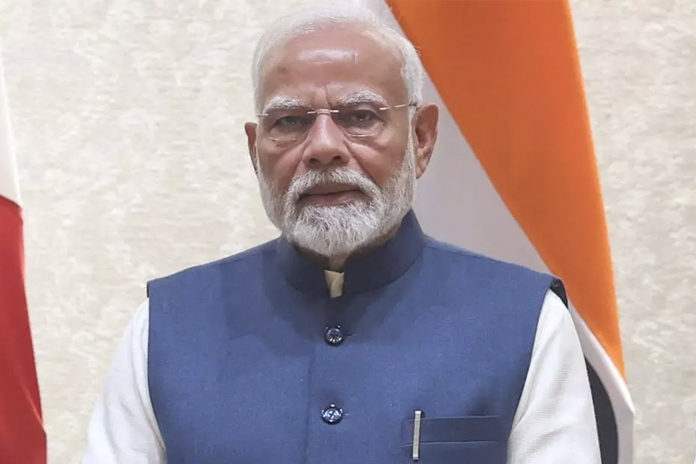Prime Minister Narendra Modi has embarked on a historic visit to Poland and Ukraine, a diplomatic tour that not only reaffirms India’s ties with these nations but also casts a spotlight on its complex relationship with Russia amidst ongoing global tensions.
Strengthening economic and democratic ties with Poland
The Prime Minister’s visit to Poland, the first by an Indian leader in 45 years, underscores the significance of Poland as a strategic economic partner in Central Europe. This visit coincides with the 70th anniversary of diplomatic relations between the two countries, highlighting a shared commitment to democracy and pluralism.
“Today, I am embarking on an official visit to the Republic of Poland and Ukraine. My visit to Poland comes as we mark 70 years of our diplomatic relations. Poland is a key economic partner in Central Europe. Our mutual commitment to democracy and pluralism further reinforces our relationship,” stated PM Modi.
A historic first: Modi’s visit to Ukraine amid conflict
Following his stay in Poland, PM Modi will travel to Ukraine, marking the first visit by an Indian Prime Minister to the country. This visit is particularly significant given the ongoing military conflict with Russia. It underscores India’s willingness to engage with Ukraine, signaling a nuanced approach to a region embroiled in conflict.
The balancing act: India’s relations with Russia
PM Modi’s visits to Ukraine and Poland come on the heels of his recent trip to Moscow, where discussions with Russian President Vladimir Putin took place amidst the backdrop of a tragic attack on a Ukrainian children’s hospital. Modi’s expression of horror at the event to Putin underscores the delicate balance India seeks to maintain in its relations with Russia.
Tanmaya Lal, Secretary (West) in the Ministry of External Affairs (MEA), emphasized the independent nature of India’s ties with both Russia and Ukraine. “India has substantive and independent ties with both Russia and Ukraine, and these partnerships stand on their own,” Lal remarked. He stressed that India’s diplomatic engagements are not a zero-sum game, indicating a strategic balancing of relationships.
India-Russia ties in the context of Ukraine conflict
The ongoing conflict between Ukraine and Russia presents a diplomatic challenge for India, which has historically maintained a strong relationship with Russia, particularly in defense and energy. However, India’s approach to the Ukraine conflict has been one of cautious neutrality, advocating for resolution through dialogue and diplomacy.
India’s stance is guided by its principle of non-alignment and strategic autonomy. PM Modi’s statement that “this is not the time for war” and his advocacy for solutions through diplomatic channels reflect a consistent policy of seeking peace in the region.
Implications for future diplomatic relations
The outcomes of PM Modi’s discussions in Ukraine could have significant implications for India’s future relationship with Russia. While India continues to engage with Russia, its independent diplomatic moves, such as the visit to Ukraine, show a commitment to maintaining balanced ties with all countries involved.
Moreover, as Western countries, particularly the United States, express concerns about India’s close relations with Russia, PM Modi’s diplomatic maneuvers in Poland and Ukraine could help assuage some of these concerns by demonstrating India’s commitment to democratic values and international peace.
PM Modi’s diplomatic tour to Poland and Ukraine illustrates India’s ongoing effort to navigate its complex relationships in a changing global landscape. As India engages with countries on both sides of the Ukraine conflict, its diplomatic actions will continue to reflect a balance between its historical ties with Russia and its commitment to international norms and peace. The strategic dialogue and outcomes from these visits will likely shape the trajectory of India-Russia relations and India’s position in global geopolitics for years to come.










